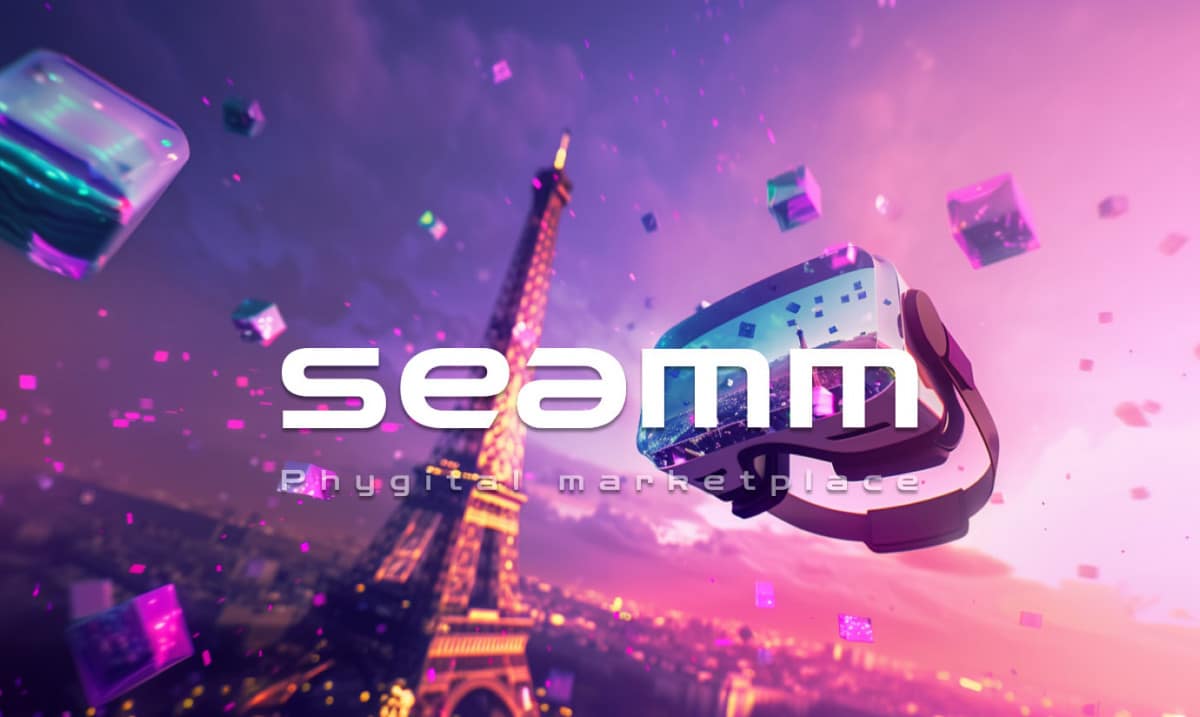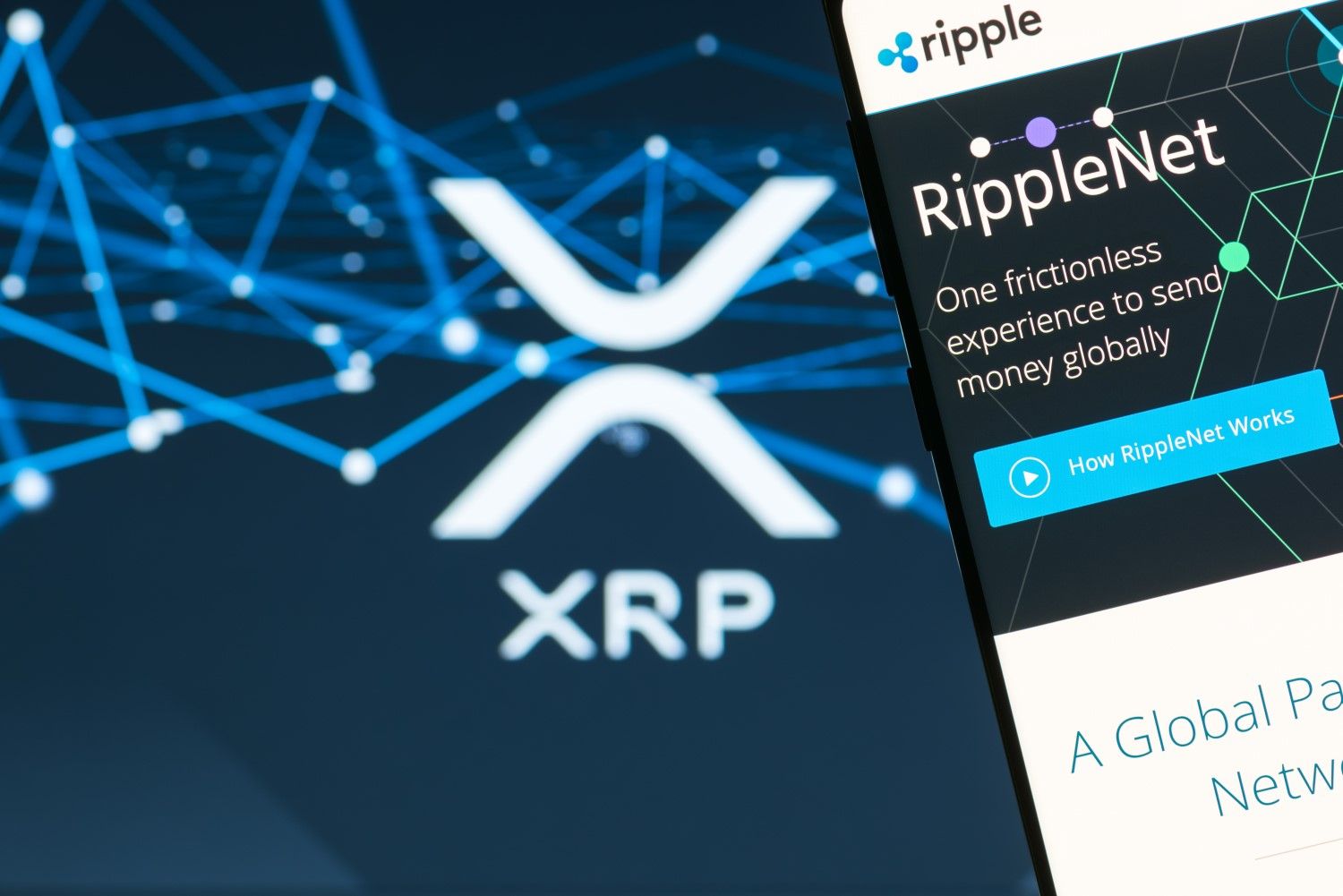

In Brief
Alexandra Maslova, co-founder of SEAMM, talks about a novel phygital marketplace that expedites businesses’ adoption of digital fashion.
During Paris Blockchain Week, we had a chance to talk to Alexandra Maslova, the co-founder of SEAMM, whose extensive background in traditional fashion inspired the creation of a groundbreaking phygital marketplace. Recognising the disconnect between the worlds of fashion and technology, Alexandra saw an opportunity to streamline the adoption of digital fashion for brands through SEAMM’s intuitive marketplace. Her pioneering spirit has led SEAMM to merge the best of Web2 and Web3, offering functionalities like AR try-on, customisation, and seamless blockchain integration.
How did you come up with the idea of creating SEAMM?
As I come from a traditional fashion background, where I worked for over 12 years, I’ve seen there been a gap between Web3 and Web2. A lot of brands came to us without having a clue what digital fashion is about. They asked us: What do we need to do? Where do we start? What is NFC? What is blockchain? So I thought, okay, why not give them a simple, easy solution and blend them together? That’s how we created a phygital marketplace.
Could you share some insights into the platform’s functionality, specifically regarding AR try-on, customisation, and digital twin transfers into virtual environments?
We launched it at the end of February, and we’re actively promoting it right now. Our main idea was to merge the best from the Web3 and Web2 worlds. On the platform, you can buy physical items, like real items, and each of them has a digital twin. Digital twin means that you can try on every single item with the AR try-on feature through your camera. You can also customise the items, change patterns, colours, or whatever the brand wants.
You can also transfer it to games and metaverses, such as Minecraft and Roblox; for that, we have skins included. All the coolest features that you have in digital fashion now are available through our platform.
The idea is also that if the brand wants to sell a digital item, they can sell a purely digital item for any reason they want, for an NFC collection, it could be a collectable, which gives you access to benefits for the physical selection.
Can you elaborate on how SEAMM simplifies the process for brands, particularly in terms of blockchain integration and designer collaboration?
We combine the best that is happening right now and put it all in one place. The other thing is that it is super easy for brands to use our platform because we have APIs for all the main CRMs and ARPs, like Shopify and Wix. Whenever the brand connects to our marketplace, we automatically connect to their warehouse, which means that if there is an order placed through the marketplace, the brand immediately gets the order in their system, and they can ship it out.
From our side, we deal with digital items. We have a virtual wardrobe, so users will have it in their virtual wardrobe within the same platform. That’s a B2C thing, and we do have a B2B product. It’s just a different solution with the same features but white-labelled. For bigger brands that want their own app or the same widgets on their website, we have a white-label solution.
Can you provide an overview of SEAMM’s Digital Product Passport (DPP) solution and its significance for luxury clothing brands, especially in light of upcoming EU digital passport regulations?
Naturally, after releasing the marketplace, the next step was to go for a digital product passport. At the moment, there is a regulation that is going to be in 2026: if you want to sell in Europe, you need to have a digital product passport. Brands are aware of that, but a lot of them are still slightly confused.
For now, the requirement is simple. It should be a QR label with a QR code that says that it needs to be transparent where the item was made. It needs to have all the information about the production, which is all done for sustainability reasons. For us, as we are all about digital, it makes more sense to put it all on blockchain because that’s actually the only way that you can be transparent about it.
You can actually know what happened to the product, where it was made, and everything. That is the next thing that we are heading towards. We already have our MVP version, and we are going to announce more soon.
Have you already chosen what blockchain network to work with?
We are choosing right now. The main thing for us is to scale it because we are a digital product. For us, it is important to know what marketing possibilities, as well as technical, the blockchain can provide for us because we want that collaboration to be out there. We want it to be interesting for people to talk about it from both sides.
Our site has a full technical team, and the technical side should not be an issue. For example, I know that Solana is great and easy to work with, the same as Ethereum, but we are looking into possibilities to scale it properly.
Talking about the regulations, have you faced any challenges while implementing your services, and are you anticipating any challenges in the future?
I would say we have not been actually facing any difficulties from the regulation side. The only difficulties we have been facing are more from the brand side, not from the other way. As we work with traditional brands, fashion is slow in terms of adapting to new technologies and trends, compared to the other industries. It takes us time to explain to the brands how easy and accessible all these technologies are and that they are necessary for them to move forward.
Do you think that luxury brands are more difficult to transfer to Web3 than mass-market brands?
I wouldn’t say so. I would say that luxury brands have seen a lot of interest in blockchain because it makes more sense for them. A lot of luxury brands already tried and tested digital fashion.
We know that Prada has its NFT monthly drops. Dolce & Gabbana has its NFC collections. A lot of luxury brands have already tried something from it. They were one of the first adopters. For them, it makes more sense to put it all on blockchain. While in the mass market, there are brands that are testing it, not as much.
I would say the mass market is testing more the entertaining side of it. For example, trying AR try-ons, digital shows, and digital runway shows. But more from an entertaining point of view. It’s more like a marketing thing.
Can you share some insight into successful collaborations or campaigns facilitated by SEAMM during Paris Blockchain Week and beyond?
During Paris Blockchain Week, the main goal for us here was to meet, as I mentioned, to find the blockchain. It’s the first time we are meeting with blockchains and spreading the word about digital passports and what we’re heading towards. This was our main goal for Paris Blockchain Week.
Regarding collaborations from before, we do work with a dozen of emerging brands. Brands from all over the world, starting from the UK up to China. We just had a successful digital pop-up event during Shanghai Fashion Week. Before that, we had successful events during Berlin Fashion Week.
We also were part of Milan Fashion Week, where we had successful meetings with big brands such as Valentino, Dolce & Gabbana, Hugo Boss, and others. We organised the VIP dinner, and we were part of the Digital Couture Summit, where we presented our digital marketplace for the first time, talked about the product, and interacted with those brands. Then, we were also part of London Fashion Week, collaborating with emerging brands like Ciela.
Do you think that these kinds of events (Paris Blockchain Week), cover enough of the fashion industry?
There should be more attention because fashion is a big industry, like a multi-million industry. There’s a lot to cover. I think it’s a question of several years because we’re heading towards that anyway.
During these events, I would love to see more coverage. I would like to see more brands present, more talks, more panel talks, and more going on around that because right now, during Paris Blockchain Week, I don’t think it’s enough to cover the fashion industry.
Tell us about the future events you plan to visit and what you expect from them.
We’re planning to visit all the main crypto and blockchain events in the industry because, for us, it’s very important to keep up with the trends and meet the key figures and decision-makers. Right now, as I mentioned, we’re in Paris Blockchain Week, and in May, we’re visiting NFT Lisbon.
There are going to be several events happening in Asia we’re going to be in. Also, we’re going to NFT Rome. Then, those are the events from that side, and we, of course, will be present in all the main fashion weeks around the world, starting with New York Fashion Week, London Fashion Week, Milan Fashion Week, and Paris Fashion Week. It’s the same as probably several events in Asia; that’s another market we’re also tapping right now.
Disclaimer
In line with the Trust Project guidelines, please note that the information provided on this page is not intended to be and should not be interpreted as legal, tax, investment, financial, or any other form of advice. It is important to only invest what you can afford to lose and to seek independent financial advice if you have any doubts. For further information, we suggest referring to the terms and conditions as well as the help and support pages provided by the issuer or advertiser. MetaversePost is committed to accurate, unbiased reporting, but market conditions are subject to change without notice.
About The Author
Viktoriia is a writer on a variety of technology topics including Web3.0, AI and cryptocurrencies. Her extensive experience allows her to write insightful articles for the wider audience.

Viktoriia is a writer on a variety of technology topics including Web3.0, AI and cryptocurrencies. Her extensive experience allows her to write insightful articles for the wider audience.
Read More: mpost.io










 Bitcoin
Bitcoin  Ethereum
Ethereum  Tether
Tether  XRP
XRP  Solana
Solana  Dogecoin
Dogecoin  Cardano
Cardano  USDC
USDC  Lido Staked Ether
Lido Staked Ether  Shiba Inu
Shiba Inu  Avalanche
Avalanche  TRON
TRON  Toncoin
Toncoin  Stellar
Stellar  Wrapped stETH
Wrapped stETH  Polkadot
Polkadot  Wrapped Bitcoin
Wrapped Bitcoin  Chainlink
Chainlink  WETH
WETH  Bitcoin Cash
Bitcoin Cash  Sui
Sui  Pepe
Pepe  Litecoin
Litecoin  NEAR Protocol
NEAR Protocol  Hedera
Hedera  LEO Token
LEO Token  Uniswap
Uniswap  Aptos
Aptos  Wrapped eETH
Wrapped eETH  Internet Computer
Internet Computer  USDS
USDS  Cronos
Cronos  Ethereum Classic
Ethereum Classic  POL (ex-MATIC)
POL (ex-MATIC)  Artificial Superintelligence Alliance
Artificial Superintelligence Alliance  Bittensor
Bittensor  Render
Render  Ethena USDe
Ethena USDe  Filecoin
Filecoin  Algorand
Algorand  Arbitrum
Arbitrum  Stacks
Stacks  Dai
Dai  Celestia
Celestia  Bonk
Bonk  Cosmos Hub
Cosmos Hub  Immutable
Immutable